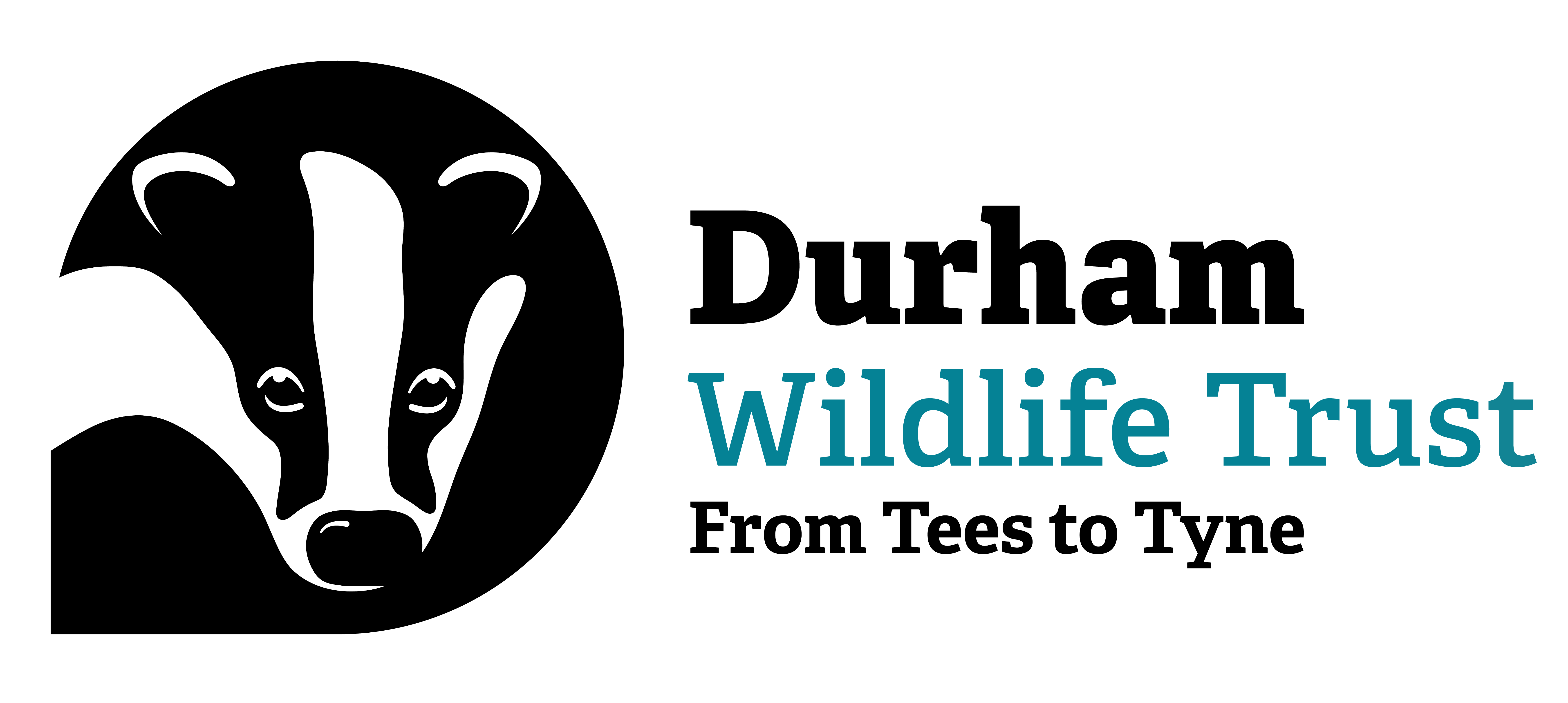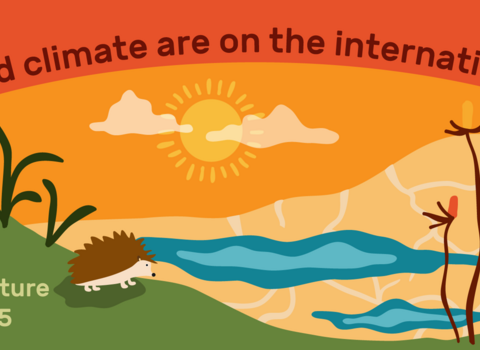What is COP15?
COP stands for 'Conference of the Parties' and these are UN conferences on its different conventions. In 2022, there are COPs taking place on both climate (COP27) and nature (COP15). COP15 is where world leaders come together to review the implementation of the Convention on Biological Diversity (or CBD). CBD is a global agreement on nature conservation. Through this, 196 parties aim to agree on 20 global targets that will halt biodiversity loss.
COP15 is taking place between Wednesday 7th December - Monday 19th December 2022, and is being hosted by China in Montreal, Canada.
What do The Wildlife Trusts want to see from COP15?
We cannot restore nature without tackling climate change, and we cannot tackle climate change without restoring nature. The Wildlife Trusts want to see bold decisions made at COP15 to ensure that by 2030, 30% of land and sea is protected for nature's recovery.
We need wildlife and wild spaces to be thriving to help us adapt to the changes brought on by climate change.
We want to see the following included in the COP15 agreement:
- COP15 must agree to a legally-binding global treaty to halt and reverse the loss of biodiversity by 2030. World leaders must make nature a priority, this is the only way we will reach our target of 30%.
- We must make progress at home! If we want to be seen as a world leader on climate and nature it is vital UK Government commits to protecting 30% of land and sea for nature by 2030.
- The UK must provide effective financial and practical support to communities that need it. Indigenous communities manage some of the earth’s most precious natural resources, the UK must help protect these. The UK also needs to provide finance to global majority countries for nature restoration. These countries are often on the front line of the climate catastrophe.
COP15 is about climate too
Tackling the climate crisis must be central to the negotiations at COP15. Without this focus, we will not effectively make progress on the climate or nature crisis. COP15 is not explicitly a climate conference however, we can't ignore nature's ability to help us adapt to climate change.
The Wildlife Trusts want to see a plan forming between the agreements made at COP27 in November and the decisions made in Montreal. We welcome commitments from COP26 President Rt Hon Alok Sharma MP that he is working hard with China to align the outcomes of the two COPs.
The UK's nature timeline
1760
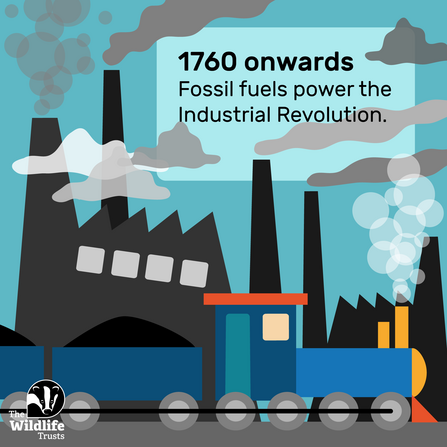
Our reliance on fossil fuels is a big driver of climate change.
1920
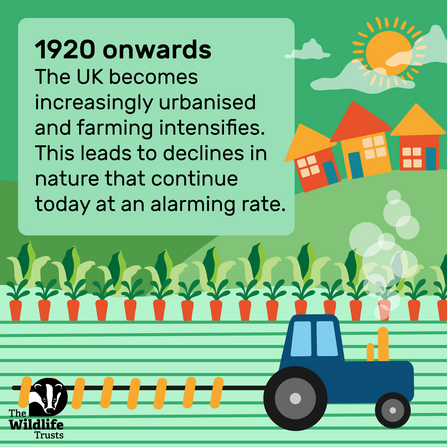
1949
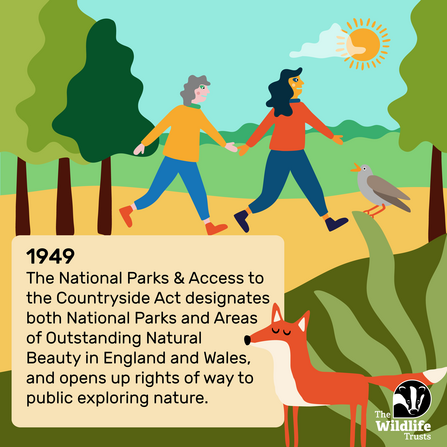
The Act established powers to declare National Nature Reserves (NNRs); to notify sites of Sites of Special Scientific Interest (SSSI's) and for local authorities to establish Local Nature Reserves (LNRs).
1964
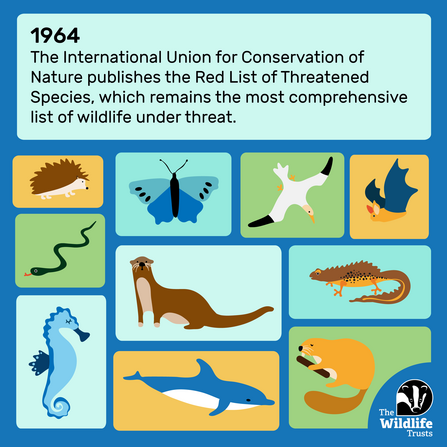
The International Union for Conservation of Nature (IUCN) is a membership Union uniquely composed of both government and civil society organisations.
1981
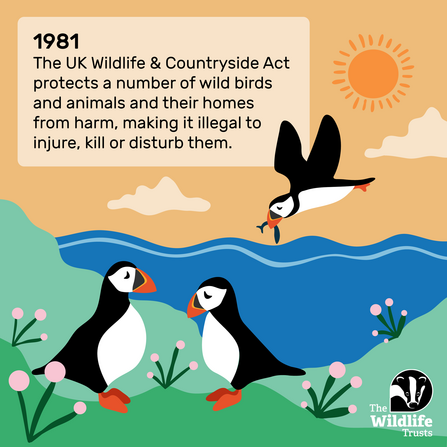
This is the primary mechanism for wildlife protection in Britain. This legislation covers four areas:
-
Wildlife protection, including protection of wild birds, their eggs and nests, protection of other animal and protection of plants
-
Nature Conservation, Countryside & National Parks
-
Public Rights of Way
-
Miscellaneous provisions
2010
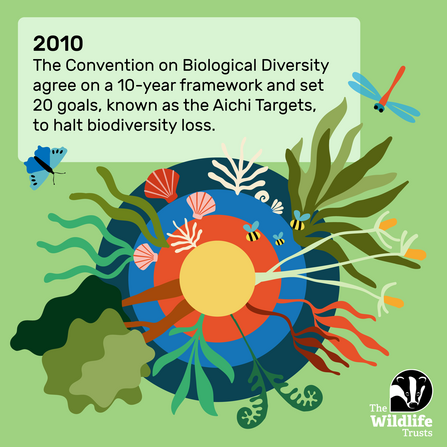
The 3 main goals of The Convention on Biological Diversity are:
- The conservation of biological diversity
- The sustainable use of the components of biological diversity
- The fair and equitable sharing of the benefits arising out of the utilization of genetic resources.
2015
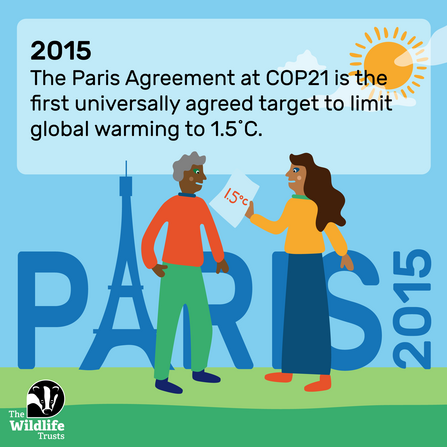
Each COP is hosted by a different nation and some are about climate, whilst others are about nature, as well as other topics. Two of the noteworthy climate COPs took place in 2015 and 2021.
COP21, which was hosted by Paris in 2015, resulted in the Parties (the 197 nations and territories) signing a new legally binding global treaty. This treaty committed those nations to ambitious action to limit average temperature change to 1.5oC above pre-industrial levels.
2019
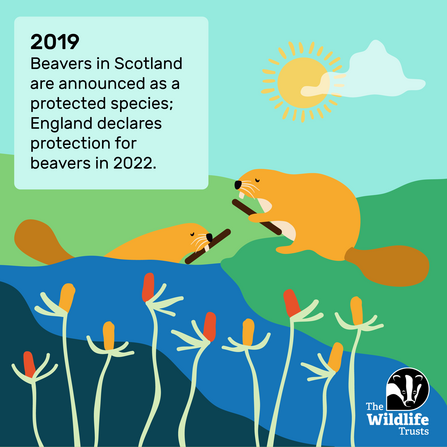
In May 2009, the Scottish Beaver Trial released the first beavers to live wild in Scotland in over 400 years. The successful five year trial led to a decision by the Scottish Government in 2016 to allow beavers to remain in Scotland!
2021
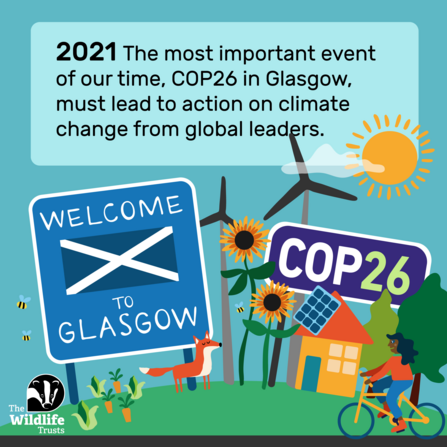
COP26, held last year in Glasgow, was the first real test of the commitment to delivering this agreement. During this meeting the Parties debated how they would achieve limiting temperature change to the agreed level.
The resulting Glasgow Climate Pact kept the ambition alive - but only just. Commitments to 'phase down' coal and end inefficient fossil fuel subsidies, were more aspirational than previous commitments - and smaller groups of countries also agreed to reduce methane emissions, halt deforestation, tackle transport emissions and end financing of overseas fossil fuels.
But action was missing on how to manage loss and damage from climate change, and provision of climate finance for countries on the frontline of climate impacts.
2022
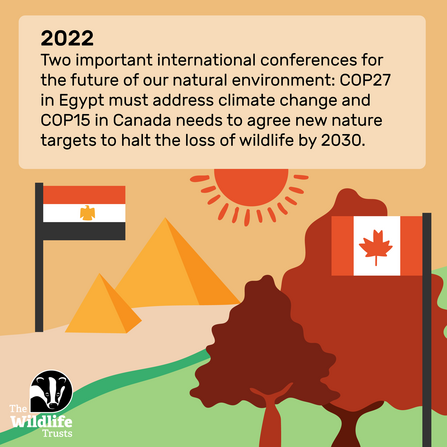
The nature and climate crises are two sides of the same coin, and one cannot be solved without tackling the other. So as the gavel finally rests on a deal at COP27, and with just a handful of weeks until the international biodiversity conference in Montreal, we review COP27’s key outcomes for nature.
Actions you can take
Protect the wildlife on your doorstep
Join Durham Wildlife Trust today
